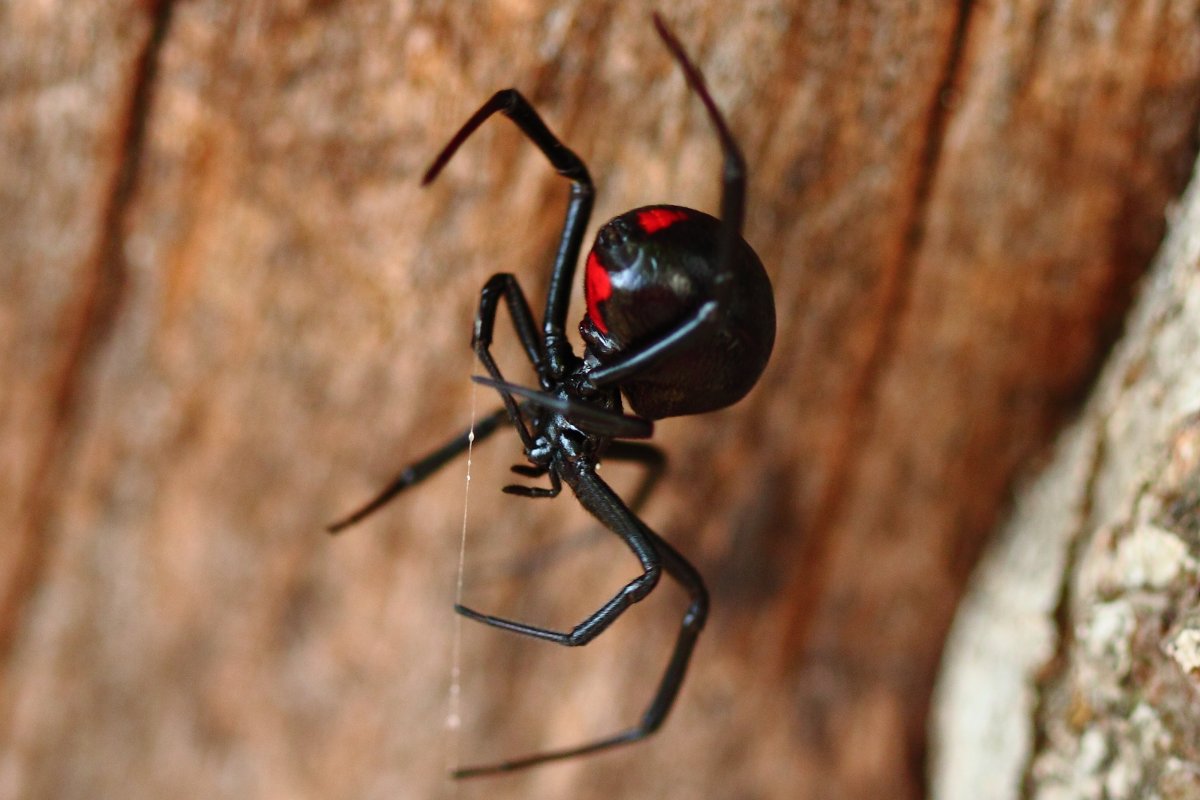An 8-year-old boy allowed a black widow to bite him because he wanted to become Spider-Man, according to health authorities.
The incident occurred in the town of Vichuloma, Oruro Department, located in the landlocked South American nation of Bolivia, Spanish news agency EFE and bolivia.com reported.
Black widow spiders are several species of venomous arachnid in the genus (group of species) Latrodectus. In most cases, female specimens feature distinctive reddish, hourglass-shaped markings on the underside of their abdomen, which tends to be dark in color.

Latrodectus spiders, commonly known as the true widows, are found on every continent except Antarctica. The venom of these spiders contains a neurotoxin known as alpha-latrotoxin. This affects the nervous system and can cause symptoms such as pain, redness and swelling around the bite site, abdominal cramps, nausea and vomiting, tremors, and sweating.
But despite their fearsome reputation, these spiders tend to bite only in self-defense or in response to a perceived threat. People who are bitten by widow spiders often do not suffer any serious complications, although they may experience varying levels of discomfort and may require medical treatment in more-severe cases.
Nevertheless, in very rare cases, the bites of some widow species have resulted in death—caused by the severe disruption of nerve signals in the body. In general, young children, the elderly and people with underlying health problems are at highest risk from spider bites. The bites of female widow spiders tend to pose more of a risk to humans than those of males.
The 8-year-old boy in Bolivia found the black widow spider under a stone. After seeing the characteristic red markings on the arachnid, he allowed himself to be bitten because he wanted to become Spider-Man, Ernesto Vásquez, head of the Zoonotic Diseases Program of the Departmental Health Service of Oruro, said.
The iconic superhero's origin story says that teenage high-school student Peter Parker gets his superhuman abilities as Spider-Man after being bitten by a radioactive spider.
"The child, without considering the risks, picked it up [and] placed it on the back of his palm where the arachnid made the bite," Vásquez told EFE.
After being bitten by the spider, the boy captured it in a glass and went home. But around three hours after, he began to feel bad, experiencing body aches and intense muscle contractions.
When questioned by his mother, the boy told her that he had been bitten by a colorful spider. The mother then took the child to a health center in a neighboring town. He was subsequently referred to the Hospital General San Juan de Dios in the city of Oruro as a a medical emergency.
Pediatricians at the hospital contacted Vásquez so that the minor could be evaluated and eventually they worked out that the boy had been bitten by a black widow. Doctors then treated the boy with anti-venom and his condition stabilized within around half an hour.
"We are extremely concerned because the analysis and questions asked to the child when he had already recovered indicate that he picked up the arachnid with a simple purpose—that he wanted to become Spider-Man," Vásquez said.
The health official added that parents should educate children, especially those under 11 years of age, about the risks of being bitten by spiders like these. If they are not treated immediately, the consequences could be "very unfortunate".
"These black spiders with red backs are black widows. They do not cause anyone to become Spider-Man—on the contrary, they are putting lives at risk," Vásquez said.
In 2020, a similar case occurred in the rural Bolivian town of Chayanta, in the Andean region of Potosí, involving three children aged 8, 10 and 12 respectively. The trio provoked a black widow spider to bite them with the same objective. Doctors also managed to successfully treat the children in that incident as well.
Newsweek has contacted the Hospital General San Juan de Dios via email for comment.
Uncommon Knowledge
Newsweek is committed to challenging conventional wisdom and finding connections in the search for common ground.
Newsweek is committed to challenging conventional wisdom and finding connections in the search for common ground.
About the writer
Aristos is a Newsweek science reporter with the London, U.K., bureau. He reports on science and health topics, including; animal, ... Read more
To read how Newsweek uses AI as a newsroom tool, Click here.








